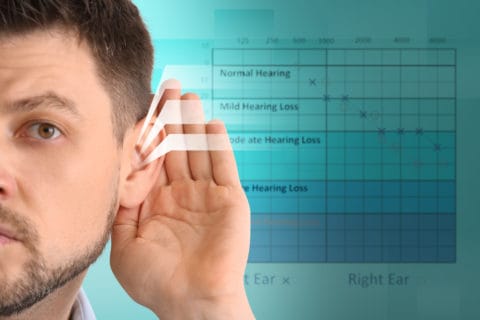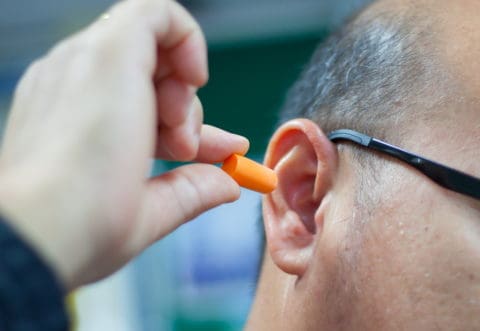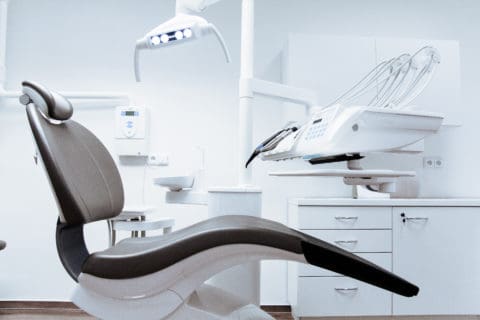10 Most Common Jobs That Cause Hearing Loss
The CDC reports that 22 million people are exposed to hazardous noise levels in the workplace each year. Hearing loss is one of the most common work-related injuries reported.
Normal conversation produces noise levels at 60 dB, but anything over 85dB is a potential threat to your hearing. It may come as a surprise to most what the highest noise level occupations are that pose a risk to our hearing.
Do you work in one of these high-risk occupations? Do you wear the appropriate hearing protection?

What is Noise-Induced Hearing Loss? (NIHL)
Noise-induced hearing loss is hearing loss that is caused by damage to the nerve fibers in the inner ears that respond to sound waves. The damage to these structures is caused by either prolonged noise or a short burst of sound over 85dB.
The louder the noise the shorter the amount of time to produce significant, irreversible damage and hearing loss. Many people won’t realize they have hearing damage until it is too late so prevention is key!
The CDC reports that 22 million people are exposed to hazardous noise levels in the workplace each year and hearing loss is one of the most common work-related injuries reported.
10 Expected and Not so expected Hazardous Noise Industries that can cause Hearing Loss
When you think of the most common occupations that can cause hearing damage and would require hearing protection, the usual suspects probably come to mind. Miner, factory worker, and construction worker.
However, those occupations just scratch the surface of hazardous noise occupations. Here are 10 jobs that can cause noise-induced hearing loss for their workers if correct preventative measures are not taken.
Flight Crew
During takeoff, a flight crew will be exposed to around 130 dB of noise, 2 to 3 times per day. The sound will then level off to around 85dB throughout the flight, which is still above the safe threshold.
The crew in the plane aren’t the only ones exposed to high noises either. Air traffic controllers, baggage handlers, and ground maintenance crews are around multiple jet engines at close range daily.

Teacher
An unexpected occupation for noise-induced hearing loss is definitely a teacher. Other hazards exist from working with our youth, but who expected hearing loss from noise?
Schools, classrooms, and hallways are much noisier than most people realize. Between bells, shouting children, slamming lockers and the hum of a classroom the noise levels fall into the prolonged exposure category. Research has shown that teachers can be exposed to up to 125dB of sound throughout the day.
Farmer
This one probably comes as no surprise to most. However, a lot of farmers fail to wear hearing protection.
Farming is in the top 3 occupations and industries for noise-induced hearing loss. Between heavy machinery and tools to even animal sounds, farmers are constantly at risk for hearing loss from excessive sound levels.

Industrial Workers
A common occupation group for high noise levels is an industrial worker. This group of occupations can include factory or manufacturing workers, lumberjacks, and miners.
All these occupations work with machinery that is capable of producing sounds above 100dB regularly and for the entirety of a shift.
Ambulance driver
When thinking of regular risks that ambulance drivers experience daily, noise exposure isn’t usually one of them. However, an ambulance siren produces sound levels close to 120dB. Add the siren to environmental noise from traffic when working on-scene and hearing loss is a major concern for these employees.
Bouncers, bartenders, and other service staff
Walking into your favorite bar or club and you suddenly must yell to talk to the person next to you. If you need to raise your voice to speak to someone an arm’s length away the noise level is considered hazardous and likely over the 85dB threshold.
This setting is at high risk for noise-induced hearing loss and preventative measures are rarely taken by the employees.
Military Personnel
Serving our country comes with inherent risks, and one significant issue affecting many veterans might surprise you. A study conducted by the Hearing Health Foundation reveals that the most prevalent disability among veterans is hearing loss.
This research indicates that a staggering 60% of veterans who served in combat roles in Iraq and Afghanistan experience Noise-Induced Hearing Loss (NIHL). The culprits responsible for this condition include gunfire, explosions, aircraft engines, and mechanical equipment. Additionally, the study highlights that weapons testing and usage can produce noise levels of up to 140dB, marking it as one of the highest sources of risk on our list.
Mining Crew
In the realm of noisy workplaces, mining shares similarities with the construction industry. It’s noteworthy for having a higher proportion of workers exposed to workplace noise compared to other occupations. Miners frequently operate loud machinery, often in confined spaces, leaving the noise with limited escape routes.
Based on research conducted by the CDC, a significant 40% of miners encounter noise levels consistently exceeding 90 dB. Some of these sounds can even reach ear-piercing peak levels of 135dB.
Dentists
Turbine drills are used throughout the day by a dentist and these tools produce up to 115dB of sound. Not only is it an annoying sound to the patient but it is extremely harmful to the dentist being exposed to the noise all day.

Motorcycle rider
While not typically a common occupation in itself, many law enforcement officers and couriers may use motorcycles regularly for their daily jobs.
The noise level that a motorcycle rider is exposed to is surprisingly high. Going just 50mph will cause 90dB of sound under a helmet. If you don’t wear a helmet…the noise level is even more dangerous! The faster you ride the higher the sound level!
WorkSafe can Help Prevent Hearing Loss
Sound exposure is common in a wide range of industries, some industries that we don’t even think about having hazardous noise levels.
Noise-induced hearing loss is 100% preventable in all individuals with appropriate measures. Knowledge and proactive measures will ensure you and your employees live a long, sound-filled life!
WorkSafe in Wichita, KS can help you with your hearing conservation needs and education to keep your employees safe and hearing well!
Contact WorkSafe to find out how we can help your company today!
Working to keep you safe, healthy, and productive,

